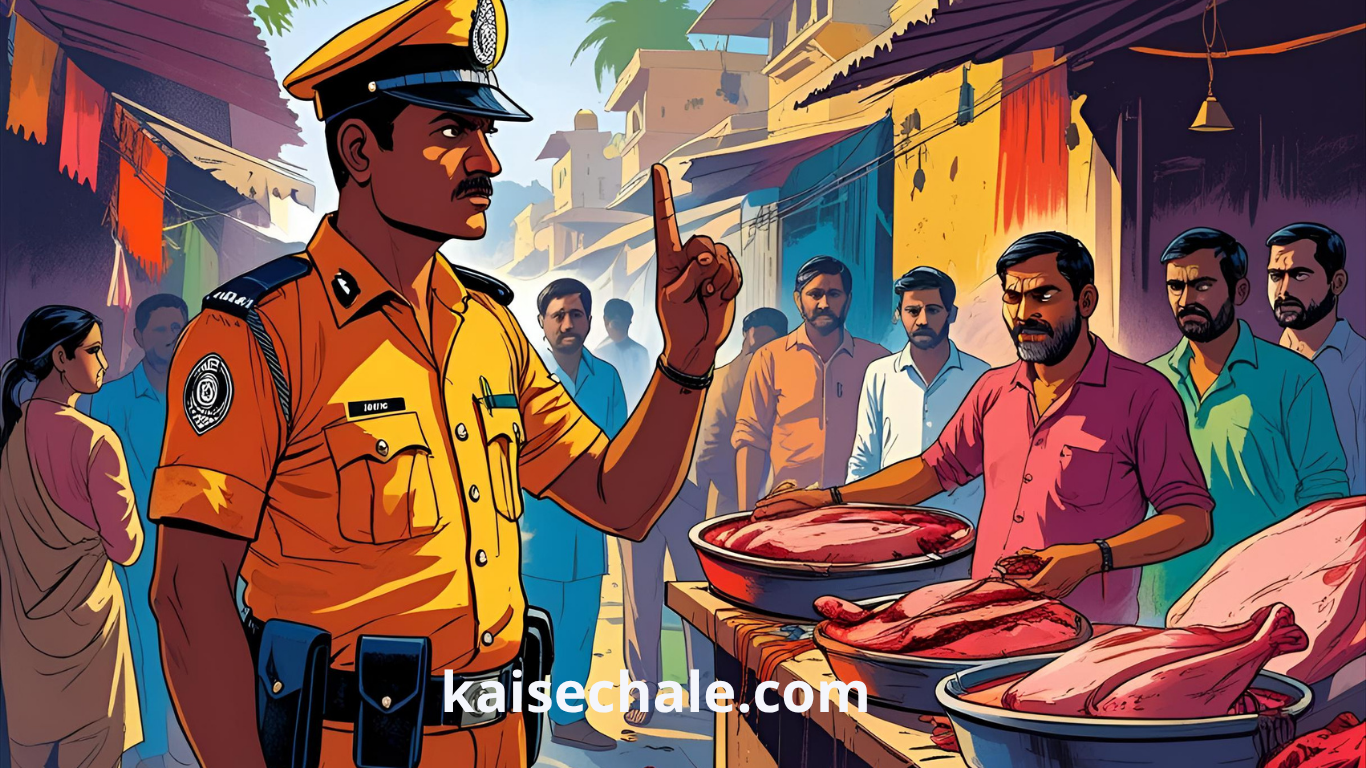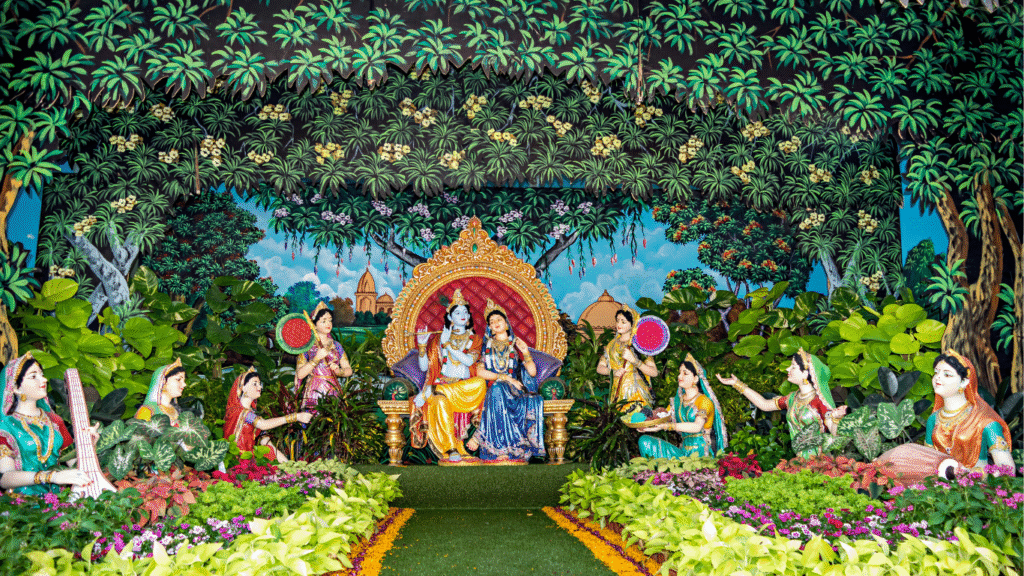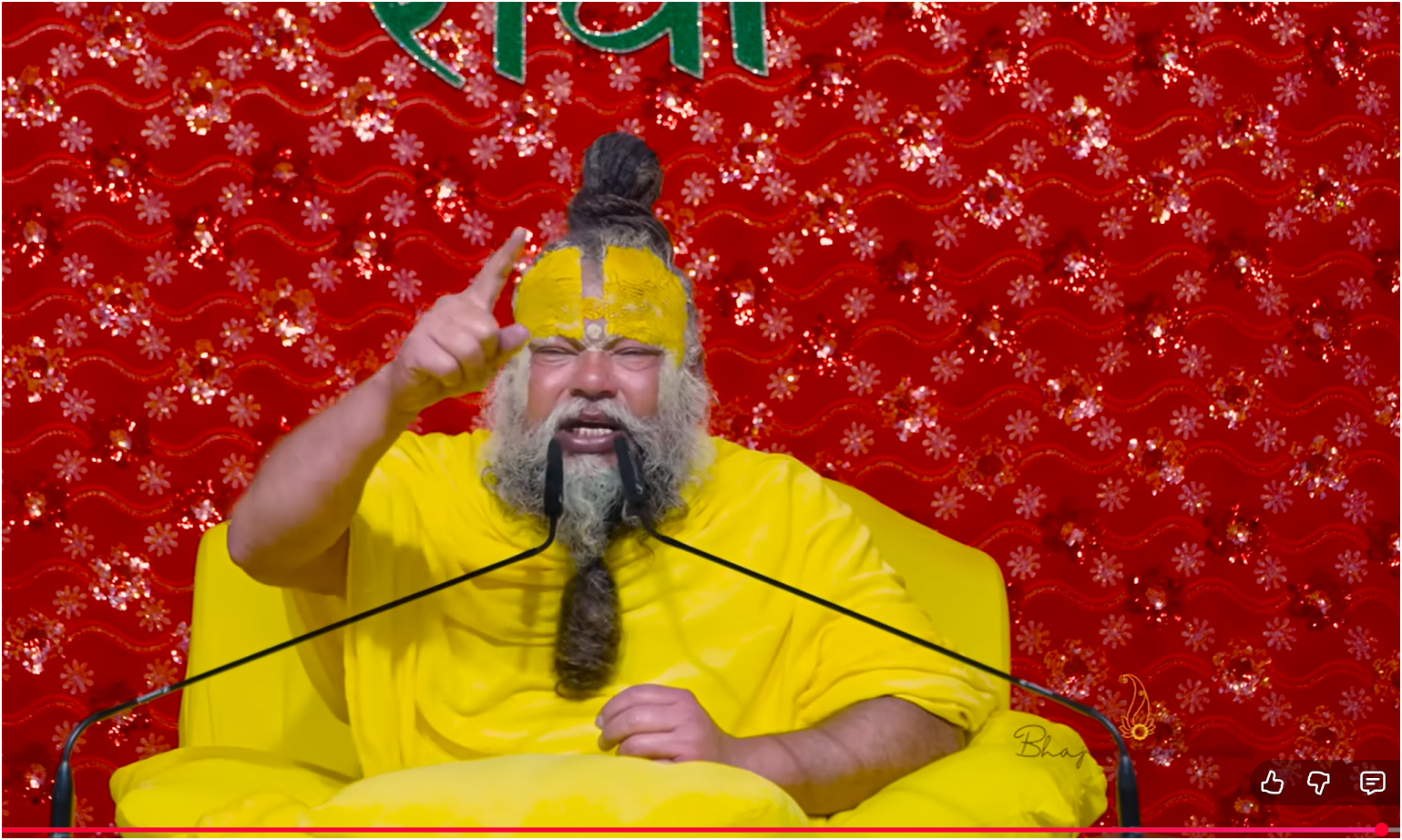
#VegetarianCities #MeatBanIndia #IndiaCulture #HolyCities #NoMeatZones #PureVegetarian #SpiritualDestinations
भाग 1 : हिंदी में
प्रस्तावना
भारत विविधतापूर्ण धर्मों, संस्कृतियों और परंपराओं का देश है। यहाँ अनेक स्थान ऐसे हैं जहाँ की सांस्कृतिक, धार्मिक और आध्यात्मिक महत्ता के कारण मांस, मछली, अंडा आदि जीवों के उत्पादों की बिक्री पूर्णतः प्रतिबंधित है। ये प्रतिबंध सामाजिक सहमति, कानूनी नियमावली और धार्मिक मान्यताओं के मिलने से बने हैं। प्रस्तुत लेख में हम विस्तार से जानेंगे वे प्रमुख स्थान, उनकी पृष्ठभूमि, वर्तमान शासनादेश और समाज की बदलती सोच।
भारत में मांस बिक्री पर प्रतिबंध के ऐतिहासिक एवं सांस्कृतिक कारण
1. धर्म और आध्यात्मिकता का प्रभाव
भारत में अनेक स्थान ऐसे हैं जो धार्मिक दृष्टि से अत्यंत पावन माने जाते हैं। इन स्थानों पर मांसाहार का निषेध प्राचीन काल से ही परंपरा में रहा है। विशेष रूप से हिंदू, जैन और बौद्ध धर्म में अहिंसा और जीव संरक्षण की भावना प्रबल है।
2. कानूनी व्यवस्था एवं शासनादेश
कुछ राज्यों और शहरों में स्थानीय सरकारों द्वारा स्पष्ट आदेश जारी किए गए हैं, जिनके तहत ख़ास भौगोलिक क्षेत्रों में मांस, मछली और अंडों की बिक्री व सेवन अपराध की श्रेणी में आता है। साथ ही, उत्सव और त्योहारों के दौरान भी अस्थायी प्रतिबंध लगाए जाते हैं।
प्रमुख स्थान जहाँ मांस पूरी तरह प्रतिबंधित है
1. पालिताना (Palitana), गुजरात
पालिताना शहर दुनिया में अकेला ऐसा नगर है जहाँ मांस, मछली, अंडा और इनके किसी भी रूप में उपयोग, बिक्री या सेवन पूर्णतः निषिद्ध है। जैन धर्म के लिए यह स्थान अत्यंत पवित्र है और यहाँ 800 से अधिक मंदिर हैं। जैन साधुओं के आंदोलनों के बाद 2014 में स्थानीय प्रशासन ने यहाँ के लगभग 250 मांस दुकानों को बंद करवा दिया। इसके बाद से जानवरों की हत्या, मांस का निर्माण, बिक्री एवं सेवन पर कड़ा कानूनी प्रतिबंध लागू हो गया238।
2. हरिद्वार (Haridwar) और ऋषिकेश (Rishikesh), उत्तराखंड
गंगा के तट पर बसे इन दोनों शहरों का हिन्दू धर्म में गहरा महत्व है। यहाँ धार्मिक समारोह, कुंभ जैसे वैश्विक आयोजन होते हैं। हरिद्वार और ऋषिकेश नगर निगम क्षेत्रों में मांस, मछली तथा अंडा की बिक्री प्रतिबंधित है। पर्यटक और स्थानीय जन केवल शाकाहारी भोजन का ही सेवन कर सकते हैं, होटल व रेस्तरां भी केवल वेजिटेरियन भोजन परोसते हैं911011।
3. वृन्दावन (Vrindavan), उत्तर प्रदेश
भगवान श्रीकृष्ण की लीलाभूमि वृन्दावन में शाकाहार के प्रति खास आग्रह है। यहाँ नगरीय प्रशासन द्वारा मांस और अंडा की दुकानों पर प्रतिबंध लगाया गया है, विशेषकर मंदिरों के आसपास। धार्मिक रीति और पर्यटन का केंद्र होने के चलते इस नियम को सख्ती से लागू किया जाता है।
4. अयोध्या (Ayodhya), उत्तर प्रदेश
भगवान राम की जन्मभूमि अयोध्या में भी मांस और अंडे की बिक्री काफी हद तक प्रतिबंधित है। यहाँ हज़ारों तीर्थयात्री व भक्त प्रतिदिन दर्शन करने आते हैं। सरकार और स्थानीय निकाय के तेजी से बढ़ते वेजिटेरियन अभियान के चलते पर्यटकों को केवल शाकाहारी भोजन ही उपलब्ध कराया जाता है।
5. पुश्कर (Pushkar), राजस्थान
राजस्थान का पवित्र तीर्थ स्थली पुष्कर विश्वविख्यात है। यहाँ का ब्रह्मा मंदिर अकेला ऐसा मंदिर है जो ब्रह्मा जी को समर्पित है। इस धार्मिक महत्ता को ध्यान में रखते हुए नगर प्रशासन ने मांसाहार और शराब दोनों पर प्रतिबंध लगाया है। स्थानीय गतिविधियाँ, रेस्तरां और होटल इस नियम का पालन करते हैं।
6. माउंट आबू (Mount Abu), राजस्थान
रajasthan का एकमात्र हिल स्टेशन माउंट आबू भी शुद्ध शाकाहारी संस्कृति के लिए प्रसिद्ध है। यहां जैन धर्म के कई पवित्र स्थल हैं, विशेषकर दिलवाड़ा मंदिर। इस क्षेत्र में नगरीय प्रशासन मांस और अंडे पर प्रतिबंध लागू करता है और अधिकांश भोजनालय केवल शाकाहारी भोजन ही परोसते हैं।
7. गुजरात के अन्य नगर
पालिताना के साथ गुजरात के राजकोट, वडोदरा, अहमदाबाद और जूनागढ़ में भी सार्वजनिक रूप से मांस बेचने या प्रदर्शित करने को लेकर कड़े नियम लागू हैं। यहां पशु उत्पादों की खुली बिक्री करने वालों पर कड़ी कार्रवाई होती है।
8. धार्मिक त्योहारों के समय
उत्तर प्रदेश, दिल्ली, मध्यप्रदेश जैसे राज्यों में नवरात्र, रामनवमी, सावन आदि के अवसर पर धार्मिक स्थलों के पास या कुछ दिनों तक मांस विक्रय पर आंशिक या पूर्ण प्रतिबंध लगाया जाता है। यह व्यवस्था मंदिरों, मस्जिदों, गुरुद्वारों और चर्चों के 500 मीटर के दायरे में लागू होती है।
शाकाहार और कानून
भारतीय संविधान राज्यों को यह अधिकार देता है कि वे स्थानीय जनभावनाओं को ध्यान में रखते हुए मांसाहार या शाकाहार पर नियम बना सकते हैं। कई जगह प्रतिबंधों की वजह धार्मिक भावनाएं, सार्वजनिक व्यवस्था, पर्यावरण की रक्षा और स्वच्छता भी मानी जाती हैं। जैन धर्म के आंदोलन के बाद पालिताना नगर में तो जानवरों की किसी भी प्रकार की हत्या अपराध है।
सामाजिक दृष्टिकोण एवं बदलती सोच
-
शाकाहारी शहरों में यह व्यवस्था वहाँ की सांस्कृतिक पहचान बन चुकी है।
-
व्यापार और पर्यटन को भी शाकाहार-संस्कृति के अनुसार ढालना अनिवार्य कर दिया गया है।
-
स्थानीय रेस्ट्रॉन्ट और होटल विशेष तौर पर वेजिटेरियन ही रहते हैं।
-
राजकोट, वडोदरा, अहमदाबाद में अब मांस की दुकानों पर पर्दा लगाने या अंदर ही खाद्य सामग्री बेचने के निर्देश भी दिए गए हैं।
-
धार्मिक महत्व वाले दिनों और स्थलों के निकट नियम का उल्लंघन होने पर प्रशासन सख्त कार्यवाही करता है।
चुनौतियाँ और विवाद
-
कुछ स्थानों पर वैविध्यपूर्ण भोजन की मांग रखने वालों को दिक्कत होती है।
-
भारत के शहरी इलाकों में बदलती युवा संस्कृति के कारण विरोध भी होता है, पर धार्मिक और सांस्कृतिक प्रतिबद्धता को अधिक सम्मान मिलता है।
-
समाज का एक वर्ग मानता है कि व्यक्तिगत आहार विकल्पों की स्वतंत्रता होनी चाहिए, वहीं दूसरा पक्ष पारंपरिक व्यवस्था के संरक्षण में विश्वास करता है।
निष्कर्ष
भारत के शाकाहार-प्रधान शहरों की यह परंपरा सांस्कृतिक विविधता, धार्मिक भावनाओं और सामाजिक सहमति का परिणाम है। यह व्यवस्था स्थानीय समाज की इच्छाओं और परंपराओं की अनूठी मिसाल है। विश्व में पालिताना का उदाहरण अपने आप में अद्वितीय है, जहाँ मांस, मछली, अंडा जैसी वस्तुएँ पूर्णतः वर्जित हैं। साथ ही, हरिद्वार, ऋषिकेश, वृंदावन, अयोध्या, पुष्कर जैसे स्थानों पर धार्मिक पवित्रता के कारण शुद्ध शाकाहार को अपनाया गया है। समय के साथ-साथ ऐसे स्थल भारतीय संस्कृति की पहचान बनते जा रहे हैं।
भाग 2 : English Article
Introduction
India, often celebrated for its pluralism, is also remarkable for the depth with which faith and tradition shape day-to-day life. Its eating habits, especially concerning meat consumption, vary impressively across the nation — while much of India enjoys a diverse cuisine containing both vegetarian and non-vegetarian delights, select cities and holy towns have long maintained an absolute ban on the sale and consumption of meat, including fish and eggs. The rationale for these bans is rooted not just in religious beliefs but also in legislative frameworks, local customs, and collective social choices.
This in-depth article explores the most prominent places in India where meat is strictly prohibited, examining the religious, legal, and social factors that have led to these unique food cultures.
Sacred Geography and the Culture of Vegetarianism
India’s spiritual landscape has given rise to numerous places of pilgrimage and religious significance. Such cities and towns, by virtue of their sacred heritage, are bound by a collective sense of purity — extending even to what is allowed on one’s plate. In these regions, the ban on meat and allied products is deeply interwoven with the population’s identity and routine.
The Role of Religion
-
Hinduism, with its doctrine of ahimsa (non-violence), jivas’ sanctity, and ritual purity, exerts a strong influence in places like Varanasi, Ayodhya, Haridwar, Rishikesh, and Vrindavan.
-
Jainism goes a step further, advocating total non-violence toward all living beings, which plays a foundational role in the absolute ban seen in Palitana, Gujarat.
For these communities, consuming meat is not only a dietary choice but a matter of spiritual discipline and reverence toward the divine.
Legal Provisions and Governance
-
Municipal Restrictions: City authorities across certain regions legislate bans on slaughter, sale, and preparation of non-vegetarian foods within city or town limits, or specifically near temples and religious precincts.
-
Festival-Specific Bans: In places like Uttar Pradesh, annual religious events such as Navratri and Ram Navami bring about temporary but complete bans on meat sales across specific zones.
-
Permanency in Holy Cities: In cities deemed ‘holy’, like Palitana, Pushkar, and Rishikesh, the ban is not just seasonal but perpetual.
Notable Locations with a Total Meat Ban
Palitana, Gujarat
Palitana, situated in Bhavnagar district, is globally acknowledged as the first city where meat, fish, eggs — and even acts leading to animal slaughter — are criminally banned. Home to more than 800 Jain temples, the ban was instituted after persistent campaigns and peaceful protests by Jain monks. The government shuttered 250 butchers in one stroke, permanently outlawing any form of animal slaughter, sale, or consumption in the city. Even the trade of eggs is a cognizable offense here.
Palitana stands as a living example of religious advocacy directly shaping civic law and lifestyle.
Haridwar and Rishikesh, Uttarakhand
Both cities serve as pillars of spiritual India, sitting gracefully by the banks of river Ganga. Their sanctity attracts not only millions of Hindu pilgrims each year but also ensures that only vegetarian food is available within city limits. Both town administrations strictly regulate the operation of butcheries and meat shops, permitting only pure vegetarian food at hotels and eateries. The rationale lies in upholding the city’s spiritual ethos and reverence for the sacred river.
Ayodhya, Uttar Pradesh
Ayodhya, considered the birthplace of Lord Rama, features a de facto ban on the sale and consumption of meat and eggs. With the city emerging as a leading tourist and religious destination, its shakahari (vegetarian) culture has become central to its identity. Authorities and local restaurateurs provide only vegetarian dining options.
Pushkar, Rajasthan
Famed for its lone Brahma temple and the annual camel fair, Pushkar is a spiritual magnet for millions. Its religious authorities and local civic bodies strictly ban the sale, preparation, and serving of not only meat but also alcohol, reinforcing the city’s reputation as a hub of ritual purity.
Vrindavan, Uttar Pradesh
Vrindavan, with its mythological links to Lord Krishna, is another city where vegetarianism is strictly enforced, especially near temples and religious precincts. Municipal rules prohibit the sale and display of meat and eggs, upholding the area’s spiritual and cultural integrity.
Mount Abu, Rajasthan
The only hill station in Rajasthan, Mount Abu is shaped by its Jain heritage, particularly the revered Dilwara Temples. Consequently, local businesses adhere to vegetarian-only practices, and city ordinances actively encourage a meat-free environment, especially around religious and tourist sites.
Other Gujarat Cities
Palitana’s influence is seen spreading to other Gujarati cities such as Rajkot, Vadodara, Ahmedabad, and Junagadh, where regulations curtail the open display and sale of meat products in public and specifically around temples and places of high spiritual or community sensitivity.
Temporary Festival and Event Bans
Major Indian festivals, especially in North Indian states, see rigorously implemented but temporary bans on meat sales:
-
Uttar Pradesh: Meat sale and slaughter are banned within at least 500 meters of religious places during Navratri and on Ram Navami.
-
Delhi and MP: Political and religious leaders often call for closing of meat shops in residential areas or around Navratri, symbolizing respect for faith.
-
Maihar, MP: Explicit, time-bound bans during religious festivals to preserve the sanctity for thousands of visiting devotees.
The Legal Backdrop
Indian states wield the power to implement dietary restrictions reflecting collective sentiment and religious values, as long as such prohibitions do not run afoul of constitutional protections. Motives behind these bans may include:
-
Protection of religious sentiments
-
Respecting local beliefs, especially where the majority preference shuns meat
-
Maintaining law and order during festivals
-
Environmental and health considerations
Notably, Palitana’s status stems directly from the sustained efforts of Jain monks and a city administration responsive to their campaign for non-violence and purity.
Social Dynamics and Changing Perspectives
-
Residents often take pride in their city’s all-vegetarian character, making it integral to local identity and tourism branding.
-
The hospitality industry, especially in these cities, customizes offerings to align with the vegetarian-only ethos.
-
In rapidly urbanizing regions, however, generational gaps may arise over food freedom. Nevertheless, tradition and faith tend to influence governance and daily life more strongly in these special cities.
Controversy and Discontent
-
While bans are popular in sacred cities, they may be contested in cosmopolitan areas or among meat-eating communities, highlighting tensions between individual choice and collective customs.
-
Urban youth and migrant populations sometimes challenge these bans, but public sentiments and religious sentiments are typically prioritized.
Conclusion
India offers an astonishing array of sacred geographies where faith, law, and custom unite to perpetuate vegetarian lifestyles. Palitana, as the world’s only officially all-vegetarian city, sets the gold standard, having enshrined the values of non-violence and spiritual discipline in law. Similarly, Haridwar, Rishikesh, Ayodhya, Pushkar, Vrindavan, and select others showcase the powerful role that collective belief plays in shaping not just ritual, but everyday life and commerce. These cities continue to remind us of India’s rich tapestry — a country where reverence for all life is, quite literally, a way of life.
This article draws on reports and news updates describing the cultural, legal, and societal context around India’s meat bans. Facts and city names are based on current and recent municipal and government regulations, with additional context drawn from coverage of Palitana’s unique status as the world’s first vegetarian city and similar restrictions in places of religious significance across India.







